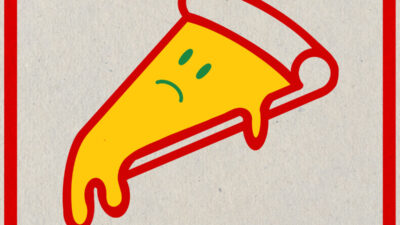Spring 2017 was a joyous time in my life. I was about to graduate college, luxuriating in having the last month of my time in school completely free. With my next step locked down, a trip to Iceland planned, and nothing ahead but sun and commemorations, I packed five of my friends into my decrepit minivan bound for Charlottesville, Virginia to catch one of our favorite artists: Isaiah Rashad.
The Lil Sunny tour was my second concert ever, coming a year before I moved to my first town with a population greater than 12,000 and really discovered the magic of live rap shows. It was beautiful; Rashad came out with the sort of energy his recorded music doesn’t convey, rocking the crowd while barely tall enough to be seen past the first few rows.
I was mesmerized.
My group slept happily in a Red Roof Inn room with a single bed, packed to the walls for the privilege of attending—a tradeoff I would make again in a heartbeat. See, the intimate, unpretentious themes that underpin Rashad’s music grew with me, arriving at college with CILVIA DEMO and leaving it with the SUN’S TIRADE, both among the albums I revisit most often to this day; both are timeless and deeply connected to some of the best memories in my life, something any music fan knows matters much more than the “objective” quality of the music, if such a measure even exists.
—
Despite the fact Rashad is one of my favorite artists of all time, the announcement in a recent FADER cover story of Rashad’s long awaited album, THE HOUSE IS BURNING, caused a sensation of strength that caught me off guard. For most of my life, I occasionally worried that I don’t feel enough; few things affect me with the strength others seem to experience emotionally. Occurrences as significant as death and as mundane as diehard sports fandom may get me for a minute, or a day, but mostly they roll off, gone the moment my focus shifts. Perhaps this is a partial result of a relatively frictionless life, lacking experience with truly impactful events—I can count far more hobbies, interests, or plans that I abandoned than I stuck with, and far more friendships that waned rather than sustained. And yet, scrolling through Facebook on May 6th, when the news of Rashad’s return broke, and the harrowing experience that led him back to rap from the precipice of addiction, despair and even death was revealed, I experienced a strong, disarming punch of both joy and fear.
Rashad’s music feels timeless, sobering, comforting and unsettling all at once. His rapping is playful, athletic, and subtle, but his topics are often dead-eyed serious, and delivered without pretension. Where contemporaries like J Cole or Chance the Rapper can manage serious, intimate rap, they struggle to toe the line of preachiness and self-righteousness, giving in to the temptation to extrapolate their own experiences onto others. Rashad resists this temptation in a manner I find genuinely compelling, allowing his own stories and feelings to set the tone. It’s the difference between “my daddy taught me how to leave somebody” and “absentee fathers have hurt a generation of children.” Rashad shares his tribulations with candor and honesty, woven into a deeply musical style. He sneaks moments of sober clarity into otherwise loose, harmonious tracks, sliding his revelations in quietly next to boasts and banter alike.
And let’s talk about the return track for a minute, because the first thing I thought upon playing “Lay Wit Ya” was…
Bruh.
“Lay Wit Ya” is not what I was expecting, not in the slightest. Not after a five year hiatus sprinkled with a singular track, a smattering of features, and a couple tweets here and there. Not with a title like “Lay Wit Ya.” Not from Isaiah Rashad.
But pressing play tipped the joy/fear scale strongly in favor of joy. Rashad sounds loose, fired up and leveled up riding a modern throwback Three 6 beat alongside the highest energy rapper of his generation, crunk revivalist and legendarily talented dancer Duke Deuce. The bass is chest thumping, riot inducing stuff, the last thing a man who’s music evokes fuzzy, late night smoke sessions and ruminations on responsibility and death would choose to make his return with. But what an introduction it is, and coupled with Jeff Weiss’s arresting article it becomes a shockingly confident statement from a man defined artistically in part by his struggles with expectation. And for all the joy it brings me to see him step back out on the stage, there is a lingering fear that producing music which brings me such joy may be killing its creator.
—
After THE SUN’S TIRADE dropped, Rashad detailed his struggles with alcoholism and the weight of carrying generational trauma as he navigated fatherhood. He promised he was over it and he’d be more prolific in the future. We now know he spiraled much harder following that statement, something he confirmed in a subsequent Billboard interview. It hurt to read that he began to fall off the wagon again while on tour in 2016. I was there. I saw him go out there and give us his all, in a much more profound way that I could’ve known at the time. On stage that night, a man might have gotten a little closer to the cliff he would eventually fall off, the crowd none the wiser to his turmoil. The malaise, burning internally for a man and artist more adept than many at expressing introversion, led him to rehab, broke and broken. To learn that, from that bottom, he climbed the ladder one rung at a time to return with a track as rollicking as “Lay Wit Ya” felt genuinely worth celebrating, a beautiful redemption arc for an ugly time.
So here we are again, at the top of another album cycle, again hearing that he’s finally faced his demons and is ready to show the world what he is capable of. Isaiah Rashad is not unique in this capacity; tales of musicians struggling with the weight of past experiences, the pressure to perform, the ease of access to drugs and yes men, are commonplace. That’s precisely why I’m wary of taking him at his word it only takes a bad day, a sliver of doubt to send someone back over the precipice. It can feel perverse to enjoy a product borne of pain, but I’m grateful to Rashad and all musicians for continuing to lay bare their struggles in their artistry. I want to love THE HOUSE IS BURNING, and I have no doubt I will, but I’d trade that immediately to know the person who made it has really found some peace this time around. I hope with all my heart this is not the beginning of another cycle, and I hope with all my heart Isaiah Rashad feels the love and support we as fans have for him, even if it meant walking away for his sanity.
















Comments